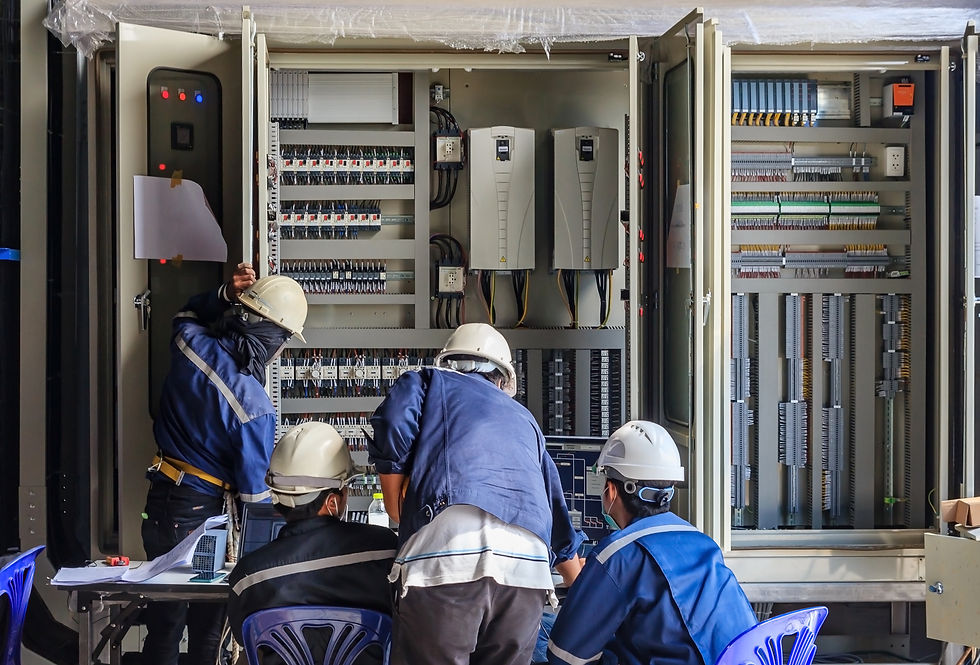Why WA is the perfect location for lithium cell manufacturing
- Bardan Cells

- May 24, 2022
- 3 min read
Updated: May 26, 2022
The recent election has appointed Anthony Albanese as the new Australian prime minister. The Labor government have promised to make the nation a “renewable energy superpower” with a promise to invest $1 billion into developing value-added products from Australian resources. This could mean great things for the local lithium cell manufacturing sector which is still in its infancy.

“Federal Labor has pledged to boost renewables, boost demand for electric vehicles (EVs) and help build community-owned solar power and battery projects. Labor’s Powering Australia Plan would see renewable capacity grow to 26GW, or 82% of all NEM generation by 2030. The plan also assumes that electric vehicles (EVs) will make up 89% of new car sales in Australia by the end of the decade.
Labor’s approach centres on a $20 billion government intervention to fast-track upgrades to the national electricity grid to accommodate the influx of renewable energy. The policy is designed to bring forward the construction of high-voltage infrastructure by lowering financial and planning barriers to unlock the commercial development of large-scale renewable energy resources.” Source
As part of this national plan, Western Australia (WA) is the best place for Australian lithium cell manufacturing to be based. Home to the largest reserves of energy metals in the world, WA offers opportunities to participate in any and every step of the supply chain. With the container port at Fremantle and the pending development of the Kwinana Outer Harbour deep-water container port, WA offers advanced road, rail, and existing infrastructure.
WA is also the home of Lithium Valley. With an ideal location full of infrastructure services, abundant energy, and a highly trained workforce, it’s perfect for businesses wanting to establish their company in Western Australia. Lithium Valley is for businesses that are dedicated to facilitating and enabling the development of secondary and tertiary processing of lithium and critical raw materials (such as cobalt, vanadium, graphite and rare earths).
Lithium Mining in Western Australia
Western Australia is the resources export hub of Australia and WA is set to become the lithium capital of the world. The sector produces more than 50 different minerals from about 125 operating projects in the state.

Source: Kidman Resources
Benefits of local lithium cell manufacturing:
Bringing state-of-the-art technology to Western Australia. Building on an existing ecosystem of critical raw materials and technical expertise.
Reducing the need to ship locally sourced non-processed lithium overseas and then buying it back for our industrial energy storage, EV’s and domestic needs.
Local supply, servicing, and support which international manufacturers can’t or have difficulty in providing.
A new manufacturing industry can be established in WA producing local jobs, technical skills, and a diversified supply chain.
Local manufacturing can focus on specialist local markets where superior cell performance is a primary customer requirement.
By producing cells in WA, local customers can request customised cells fit for purpose, tailored for the local market and local conditions. International cell manufacturers are not optimally structured to fulfil these requirements and offer limited “off the shelf” options only.
Speed of delivery – by having various components locally, the industry can provide solutions faster than international competitors.
The ability to create families of highly differentiated battery cells based around new chemistries and/or cell designs to meet the needs of its specialist customers.
Sustainability – focusing on Net Zero Carbon, sustainable and traceable production.
Significant growth markets with applications in remote & transportable power for utilities, mining & resources, defence, medical, scientific, as well as agricultural customers.
Local servicing and maintenance to improve longevity of the battery
What are Bardan Cells doing to help this local manufacturing vision become a reality?
From Concept to Reality - Bardan Cells has been working towards opening Australia’s first battery cells manufacturing microfactory in Western Australia and Stage 1 is currently underway.
Stage 1 – 2022 – Microfactory (in motion) Stage 2 – 2026 – Gigafactory
Our products are Australian manufactured using sovereign, sustainable, ethical, Net
Zero Carbon and alternative battery supply chains.
China owns over 90% of the global battery cell supply chain but a large majority of the raw materials come from Western Australia. Using the local raw materials in WA to produce our own cells makes perfect sense eliminating several supply chain steps and creating a lower carbon footprint.
WA is a strategic alternative to China offering the following benefits:
· Minimal supply chain risk
· Sustainability
· Ethical production
· Traceability
· Western legal system
· Intellectual Property protection
· Cheap energy
· Diversification
Chinese battery cells are also limited in specifications. This means that currently Australian companies are redesigning their products to accommodate Chinese cells. Essentially China is influencing Australian products.
There is currently no alternative to China for processed battery materials and China does not export raw materials. WA has reserves of all critical materials, and through Bardan Cells, WA can be the high-quality alternative to buying Chinese cells.

Cameron Edwards (Founder/Director) and Simon Chan (Technical Director) with a lithium battery cell from Bardan Cells.
For more information regarding Bardan Cells please contact Sarah Montgomery at sarah@bardancells.com



Comments